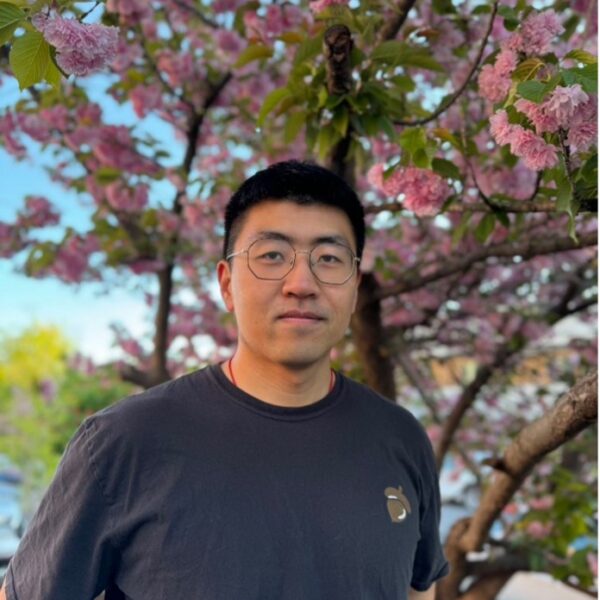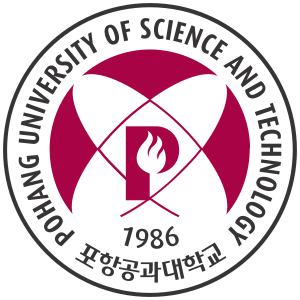
October 2024
Friends,
As we approach VALIANT’s half-birthday (November 6th), I am enthusiastic with the progress that we have made together. I have had the opportunity to meet so many new creative scholars using AI while deepening established collaborations. My main regret is that there isn’t enough time in the day to dive into everything, everywhere, all at once. To prioritize and gain momentum, we are putting together teams, connecting corners of campus, and offering support where possible. Let’s keep connected through the AI Fellows and AI Scholars programs to find the best ways to spark collaborative discovery. If you have suggestions for transformative translational AI, come talk to us. Over the coming months, we will share our first round of discovery investments.
This month, I am excited to announce our first international initiative: VALIANT Reach. For the first offering in 2025, we partnered with five universities to offer international student exchanges. Through this program we will match students and labs with potential new collaborators at partner institutions. VALANT will support in-person visits where both a Vanderbilt AI Scholar visits a partner site and a visiting scholar from a partner visits Vanderbilt for up to a month. The visits will occur sequentially to provide the most opportunity for scientific cross-pollination. Save the date of November 20th at 12 pm for our Inaugural Pitch event and follow additional developments on our website for more information on how to apply and offer hosting opportunities.
While we have been reaching out into the world, our VALIANT Attempt student group has been reaching in to build community. On Halloween, we will host trick-or-treating across VALIANT labs and a pizza social in the FGH/Jacobs AI Lounge (3rd Floor by FGH 385). For those intrepid seekers who get their steps in and visit all 11 stations, we will have a special VALIANT-branded prize (while supplies last).
– Bennett
Driving Innovation and Collaboration
Chris Harris, Director of Licensing in the Center for Technology Transfer and Commercialization (CTTC) at Vanderbilt, has been a key leader in advancing technology and innovation for over 20 years. Since joining Vanderbilt in 2011, Harris has helped shape the university’s growing focus on entrepreneurship, commercialization, and strategic industry partnerships.
His journey to Vanderbilt began with a longstanding professional relationship with Alan Bentley, Assistant Vice Chancellor for Tech Transfer. When Bentley asked Harris to join the team and lead the licensing efforts at Vanderbilt, Harris saw it as a perfect opportunity. “Working with Alan and leading the team at a place like Vanderbilt was a dream come true,” Harris recalls.
During his tenure, CTTC has expanded its role far beyond traditional patent management. The office now actively supports entrepreneurship and industry collaborations, providing education, connections, and resources to ensure successful commercialization. Harris has been instrumental in developing programs that foster early involvement from students and researchers across the university.
Two standout programs launched with the support of VALIANT are the pre-internship disclosure initiativeand the IP Incentive Program. The pre-internship disclosure program encourages students to disclose their creative work and inventions before they leave for internships. “By documenting their ideas upfront, we help avoid any future confusion about ownership and ensure proper attribution,” Harris explains. “Pre-internship disclosures provide clarity and protect both the students and Vanderbilt’s intellectual property.” This proactive approach allows students to enter internships with clarity, protecting Vanderbilt’s intellectual property while promoting seamless collaboration with external partners.
The IP Incentive Program has also gained momentum, with students taking an active role in disclosing their work. In just the first quarter, this initiative led to five invention disclosures, with at least one provisional patent already filed. “Engaging students in the disclosure process not only gives them real-world experience but also helps streamline the patenting and commercialization process,” Harris says. “[Students] bring fresh ideas and have the time to dive deep into the technology. It’s an incredible learning experience for them, and it benefits us as well.” These programs are key to building a culture of innovation at Vanderbilt, where students are empowered to protect and commercialize their ideas.
Harris’s vision for CTTC is clear: support the university’s mission of innovation by expanding opportunities for researchers, students, and industry partners: “We’re doing so much more than just patent management now. From entrepreneurship support to fostering industry collaborations, we’re actively working to ensure that Vanderbilt’s research has real-world impact.” With initiatives like the pre-internship disclosure and IP incentive programs, CTTC continues to position Vanderbilt as a leader in technology commercialization and entrepreneurship.
Alumni Lookout

This story from the field is brought to us by Dr. Quan Liu (PhD’24, VanderbiltComputer Science), Advanced AI/ML Research Scientist at Accenture. His work focuses on Large Language Model (LLM), business-centric chatbot, Retrieval-Augmented Generation (RAG) and AI Agent for business model integration.
After earning my PhD in Computer Science from the HRLB labat Vanderbilt University in 2024, I began my industrial career at Accenture, where I specialized in developing large language models (LLMs) and AI agents tailored to business-centric challenges. My work focused on creating chatbots for comprehensive business analysis and leveraging natural language queries for financial data visualization. These AI tools, built on advanced LLMs and large-scale foundation models like GPT-4o, LLaMA-3.1, and Mistral, are transforming the business landscape by helping organizations stay ahead.
The generalizability of LLMs introduces revolutionary changes across various domains, though ensuring the correctness and consistency of their outputs, especially in complex business reasoning tasks, remains an active area of research. The LLM approach provides valuable insights into business problems through two key aspects: business-centric question answering and data visualization from multiple perspectives. These models are trained on diverse data sources, including profiles of business leaders, financial metrics, and company annual reports. They can identify trends across a range of topics, from market fluctuations to shifts in industry leadership. For example, if a user asks, ‘How has interest in sustainable consumption among younger consumers affected purchasing patterns?’ the LLMs can generate a thorough and precise analysis by utilizing recent news articles, reports, and video interviews. For more complex business data, the AI agent can also provide explanations enhanced with charts and graphs.
The most valuable lesson I learned at Vanderbilt is that less is more. By focusing on the essentials, I realized that depth often outweighs breadth. Staying curious about advanced techniques and continuing to explore them has been key to becoming an independent and productive researcher. This mindset has guided me to prioritize quality over quantity in my work.
VALIANT Ventures
- Prof. Brett Byram joined Quest to develop fully autonomous surgical robot and attracted up to $12 million from ARPA-H.
- Prof. Yuankai Huo and his lab co-organized the 2nd MOVI Workshop and the 1st KPIs Challenge at MICCAI 2024.
- Cathy Cui was selected for the IEEE BHI’24 NSF Student Travel Award for presenting her first-author paper at IEEE BHI conference.
- Prof. Yuankai Huo and Profs. Bennett Landmanpartnered with Dr. Kim Sandler and the team on a new award for “Evaluation of Radiomic and Blood-Based Biomarkers for the Early Detection of Lung Cancer in People Living with HIV.”

Growing International Exchange
We are pleased to announce a new partnership with POSTECH to advance innovative research in medical imaging and neuroinformatics, fostering collaboration at the forefront of AI-driven healthcare solutions.
 Open Access Science
Open Access Science
Halloween Hunt
VALIANT Reach: Save-the-Date 
RPW Seminar: AI and the Human 

AI in Cancer Genomics
Alchemists’ Corner
- Systematic Aerial Imaging and Documentation of the Archaeological Site of Huari: An Update and Perspectives for the Future
- Frequency-independent dual-tuned cable traps for multi-nuclear MRI and MRS
- Zero-shot prompt-based video encoder for surgical gesture recognition
- A Tale of Two Comprehensions? Analyzing Student Programmer Attention during Code Summarization
- Blood Flow Velocity in Skin Microvasculature by Line-Field Confocal Optical Coherence Tomography (LC-OCT) at Two Different Acquisition Speeds
- Semantic Segmentation and Classification of Active and Abandoned Agricultural Fields through Deep Learning in the Southern Peruvian Andes
- Interactive Segmentation Model for Placenta Segmentation from 3D Ultrasound Images
- Organization of a cytoskeletal superstructure in the apical domain of intestinal tuft cells
- Insufficient evidence for interactive or animated graphics for communicating probability
- White matter engagement in brain networks assessed by integration of functional and structural connectivity
- Aspiring to clinical significance: Insights from developing and evaluating a machine learning model to predict emergency department return visit admissions
- A multimodal approach to support teacher, researcher and AI collaboration in STEM+C learning environments
- Intravenous arachnoid granulation hypertrophy in patients with Parkinson disease

valiant@vanderbilt.edu | https://vanderbilt.edu/valiant | @VandyValiant | LinkedIN
“Vanderbilt” and the Vanderbilt logo are registered trademarks and service marks of Vanderbilt University.